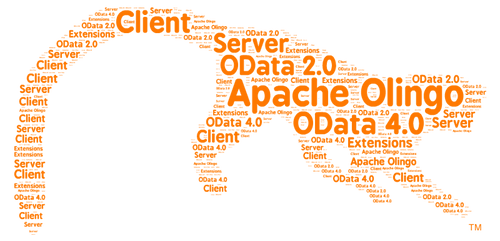Batch Request construction¶
Query Request construction
A BatchQueryPart is a representation of a single retrieve request. You can use the following methods in order to fill out a request:
- method(String)
- uri(String)
- contentId(String)
- headers(List
)
BatchQueryPart request = BatchQueryPart.method("GET").uri("$metadata").build();
Note: The valid method value is GET.
ChangeSet construction A BatchChangeSetPart is a representation of a single change request. You can use the following methods in order to fill out a change request:
- method(String)
- uri(String)
- headers(List
) - contentId(String)
- body(String)
Map changeSetHeaders = new HashMap();
changeSetHeaders.put("content-type", "application/json;odata=verbose");
BatchChangeSetPart changeRequest = BatchChangeSetPart.method("PUT")
.uri("Employees('2')/EmployeeName")
.headers(changeSetHeaders)
.body("{\"EmployeeName\":\"Frederic Fall MODIFIED\"}")
.build();
...
Note: The valid method values are POST, PUT, DELETE or MERGE.
The change request has to become a part of a changeSet. For that you need to create a changeSet object and to attach the change request to this object.
...
BatchChangeSet changeSet = BatchChangeSet.newBuilder().build();
changeSet.add(changeRequest);
Batch request payload construction After you collected all created parts, you can call the method writeBatchRequestBody(..) provided by EntityProvider
...
List<BatchPart> batchParts = new ArrayList<BatchPart>();
batchParts.add(request);
batchParts.add(changeSet);
InputStream payload = EntityProvider.writeBatchRequest(batchParts, BOUNDARY);
The second parameter BOUNDARY is necessary information for the construction of the batch request payload. It is the value of the boundary parameter, that is set in Content-Type header of the batch request.
Batch Response interpretation Interpretation of the batch response payload You receive a list of single response by calling EntityProvider.parseBatchResponse(..)
List<BatchSingleResponse> responses = EntityProvider.parseBatchResponse(responseBody, contentType);
for (BatchSingleResponse response : responses) {
response.getStatusCode());
response.getStatusInfo());
response.getHeader(HttpHeaders.CONTENT_TYPE);
response.getBody();
response.getContentId();
}
Copyright © 2013-2025, The Apache Software Foundation
Apache Olingo, Olingo, Apache, the Apache feather, and
the Apache Olingo project logo are trademarks of the Apache Software
Foundation.

